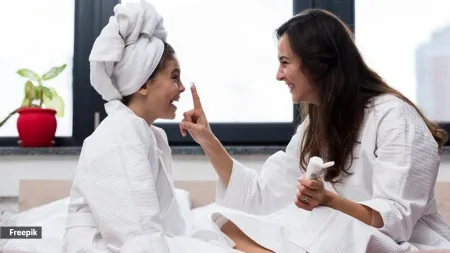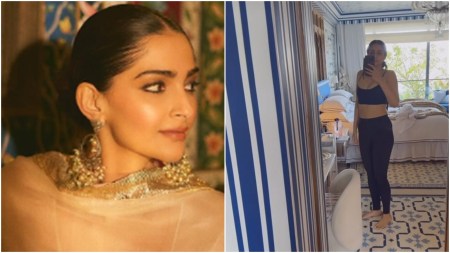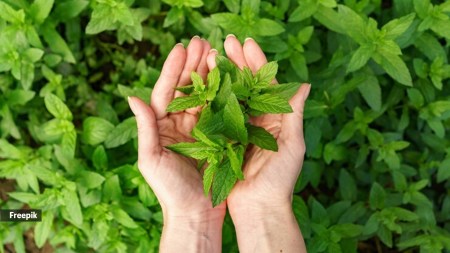Rise of DINKs: Why more couples are now opting for dual income, no kids
When Harleen Vij, 35, first began dating her partner, the idea of becoming DINKs — a couple with dual income and no kids — was made quite clear right from the start.
“We both connected on Instagram on a post I had shared on my story about why a woman’s worth shouldn’t be attached to motherhood,” Vij, a Nagpur-based social media professional, said. “Sharing similar thoughts about being a parent, we had already decided as individuals to not have a kid, and it was our good luck that our paths crossed.”

Vij and her partner represent a rising trend among couples who are consciously opting for a child-free lifestyle. This choice allows them to enjoy the advantages of a double-income household while avoiding the expenses associated with raising kids.
The population of DINKs in India has been growing at 30 per cent per annum, according to Gitnux Market Data Report 2024. In fact, the last census taken in 2011 shows that the DINK lifestyle is prevalent in nearly 42 per cent of two-member rural families compared to 22 per cent of similar urban families.
The main factor behind Vij and her partner’s decision to become DINKs was the “mental and physical labour that will be required to raise a kid.” “Although I adore kids, I don’t see myself being fully responsible for another human. Not to mention the excruciating financial cost needed to maintain a good and comfortable life for the kid,” Vij said.
Between a pandemic, lack of jobs, and the burden of debt and inflation, not having kids seems to be the prudent choice, as per Vij. According to a 2021 report by the Pew Research Center, 61 per cent of millennials said they are not having kids because they simply cannot afford to.
As for Debiparna Chakraborty, 33-year-old living in Kolkata, the decision stems from a need for freedom. “This freedom means being able to enjoy our vacations and free time doing whatever we want. Our schedule is our own. If we want to go on a trip or an event, we don’t have to consider our child’s schedule or worry about childcare,” the film critic said.
 The population of DINKs in India has been growing at 30 per cent per annum, according to Gitnux Market Data Report 2024. (Source: Freepik)
The population of DINKs in India has been growing at 30 per cent per annum, according to Gitnux Market Data Report 2024. (Source: Freepik)
A growing sub-group among DINKs is DINKWAD (double income, no kids, with a dog). Among these is Rakhi Tushir, 25, a PR account manager based in Bangalore, who feels being a DINKWAD has been “the best decision so far with zero regrets.” “So far, I have never felt incomplete, as the society preaches. Having kids is no longer the sole aim and duty of a woman, or the only way to feel complete as a family,” she said.
Before their relationship began, Tushir and her partner had a pet dog each. Now they have four together. On being asked whether she has plans to have kids in the future, Tushir remarked that the real plan is to foster and adopt more animals in need. “It’s a lot of love and licks, no fear of missing out,” she said.
On the other hand, Anurag Kumar Sankrityayan, 34, a senior consultant in Bangalore, likes to call himself a ‘GINK’ (green inclination, no kids). “I strongly believe in the idea of sustainability. Looking at the current order of our world, I doubt that our planet has enough resources to fulfil the needs of the current population. It’s getting more and more challenging to ensure our survival with each passing year due to climate change. When all of this hovers over my mind, I can’t imagine having kids of my own who might have to suffer because of the adverse climate and scarce resources,” he said.
Being a couple with disabilities, Sankrityayan shares that he and his partner are committed to improving the quality of life of other marginalised people. “I sustained a gunshot injury 10 years back, which left my body paralysed below the chest. While there are many people with similar disabilities having kids, we feel our double income allows us to support some people with spinal cord injuries who do not have the money necessary for treatment.”
Choosing the DINK life
While the term has been around since the late 1980s, the heyday of the yuppie culture – which refers to the lives led by young urban professionals – it has recently gained traction on social media, particularly TikTok and Instagram. Many couples are sharing snippets that showcase their child-free lives, highlighting the benefits through the travel, free time and luxuries they can afford.
Gautami Devi Chetri, clinical psychologist at Lissun, attributes this trend to a societal shift in attitudes towards family dynamics. “Over time, cultural perceptions have evolved, and the choice to remain child-free is now more widely accepted, reflecting changing notions of personal fulfilment.”
The main sociological reason that has contributed to the DINK lifestyle, explained Dr Gitanjali Natarajan, chief clinical psychology advisor, Niyama Digital Health Care, is the change from a collectivistic, interdependent society to a more individualistic society. “Individuals strive to exercise personal freedom in important areas of life such as career, place of stay and marriage, including childbearing. They no longer follow social rules and norms, which older generations used to do without questioning its reason and relevance.”
Additionally, in our modern lives, professional growth and careers take precedence for many individuals. “DINK couples have more time and energy to devote to their work and career progress when they are not burdened with childcare duties. They may also have a greater opportunity for personal development, self-discovery, and following their passions that might not be practised if they were burdened with other responsibilities,” said Sidhharrth S Kumaar, relationship coach, NumroVani.
Contrary to popular perception, DINK couples have the free will and agency to choose to not have kids, and are not to be confused with childless couples. “DINK couples are not simply this uber-detached and ambitious couple who have no emotions or love as many stereotypes would like us to believe,” said Parul Bhandari, a sociologist at the University of Cambridge. “Rather, it is possible that their spiritual or humanitarian outlooks might have made them take this decision,” she added.
Bhandari, the author of many academic books, said that while our society is witnessing a rise in consumerism and a sense of heightened individuality, there is also a concomitant rise of interest in the spiritual and communitarian. “Many couples may choose a DINK life to devote more time to a spiritual or humanitarian cause. There are also those who do not want to bring another life into this already competitive and difficult world.”
View this post on Instagram
A post shared by Shannon Detrick (@shanndetrick)
The downsides
Among the top criticisms that DINK couples tend to invite is that of self-interest or selfishness. “This stigma can be especially challenging for women, who may feel the pressure to have children and prioritise family over their career or personal goals,” said Chetri. “The constant scrutiny or questioning from others about their decision can lead to feelings of judgment, self-doubt, or isolation that can act as a stressor — potentially contributing to anxiety or feelings of being inadequate.”
Another concern is around old age: Who will take care of you when you grow old? “Without children to rely on for care and support in old age, DINK couples may need to invest in pricey long-term care services or rely on paid caregivers. Their financial security and retirement funds may be impacted by this,” said Kumaar.
And then there’s loneliness. “It may seem rewarding for young couples, but they could develop a feeling of disconnect and meaninglessness later on. DINK couples may experience feelings of alienation from their social circles when friends and classmates begin families. This may contribute to solitude and emptiness,” said Aashmeen Munjaal, mental health and relationship expert.
Before deciding to adopt a DINK lifestyle, Chetri advises reviewing these important pointers:
- Reflect thoroughly on whether your choice of not having children is temporary or long-term.
- Clarify your motivations, own your decision, and check if your decision is not merely influenced by trends. This will help you reduce your inner conflict about opting for a DINK lifestyle.
- Open communication and a robust social network can alleviate anxiety, fostering positive mental health.
- Dedicate time for self-care activities that promote mental well-being, whether it is exercise, meditation, reading, pursuing hobbies, or practicing mindfulness.
- Establish clear boundaries between work and personal life to avoid burnout and exhaustion that can make you vulnerable.
- Life is dynamic, and unexpected challenges may arise. Being adaptable and resilient as a couple can help navigate these challenges more effectively, reducing potential stress.
Disclaimer: The copyright of this article belongs to the original author. Reposting this article is solely for the purpose of information dissemination and does not constitute any investment advice. If there is any infringement, please contact us immediately. We will make corrections or deletions as necessary. Thank you.





